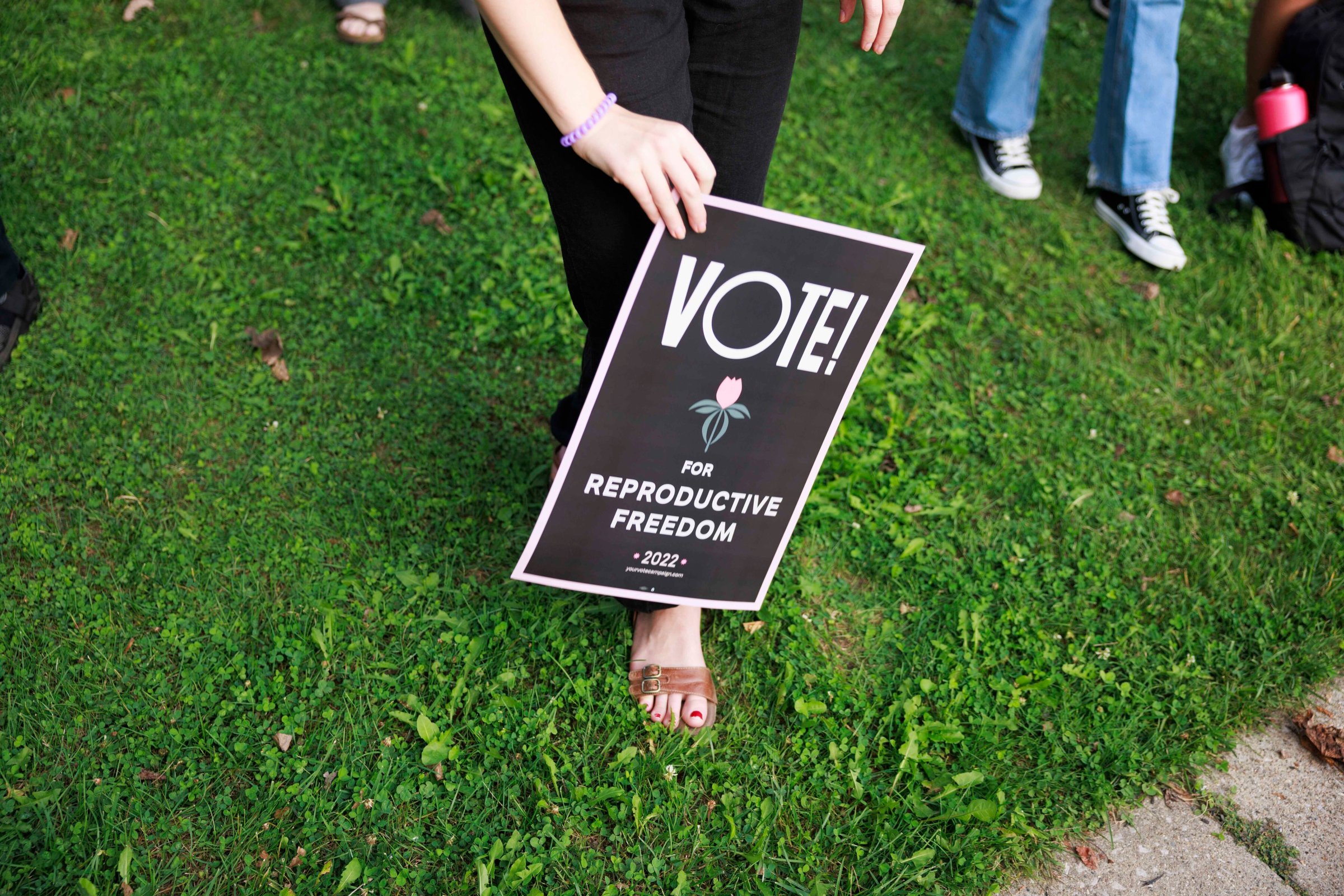
Voters in Montana rejected a ballot measure that would have declared an embryo or fetus a legal person entitled to medical care if they are “born alive” at any stage of development, including after attempted abortions.
Montana was one of five states with abortion-related ballot measures on Tuesday, and was the only one left unresolved. In all five cases, voters moved to protect abortion access—a victory for abortion-rights advocates, even in the conservative states of Kentucky and Montana.
The Montana referendum, which about 53% of voters opposed, would have imposed “criminal penalties on health care providers who do not act to preserve the life of such infants, including infants born during an attempted abortion.” Health care providers who violated the law would have faced a fine of up to $50,000 and 20 years in prison.
Proponents of the referendum argued it would protect infants. But critics said it would limit the kind of care doctors can provide and was unnecessary, given that infanticide is already illegal under state law. They also warned it would “elevate a false anti-abortion narrative.”
Experts note that abortions after fetal viability are very rare. Just 1% of abortions in the U.S. occur at or after 21 weeks of pregnancy, according to analysis by the Kaiser Family Foundation. And CDC data show that rare cases of a fetus surviving an abortion and then dying often involve severe fetal health conditions or pregnancy complications.
“I think voters may also have kind of thought this was a solution in search of a problem,” says Mary Ziegler, a law professor at the University of California, Davis and an expert on abortion politics.
“It’s yet another signal that voters in conservative states, who are certainly not necessarily open to voting for Democratic candidates, are open to voting for access to abortion when the question is presented to them directly.”
Montana has a Republican governor and a Republican-controlled state legislature, but other states have stronger abortion restrictions. The state bans abortion at fetal viability, which is about 24 to 26 weeks into pregnancy. By comparison, the neighboring states of Idaho and South Dakota have some of the country’s most restrictive abortion laws, banning abortion entirely with limited exceptions.
The ballot measure was opposed by several medical groups, including the Montana chapter of the American Academy of Pediatrics, which said it would have “criminalized doctors, nurses and health care workers for providing compassionate care for infants,” interfered with parents’ challenging decisions, and hindered care for newborns with fatal health conditions..
“Born alive” arguments have been a focus of anti-abortion advocates for decades. (A 2002 federal law, the Born-Alive Infants Protection Act, already classifies every infant as a person.) And Ziegler sees the Montana referendum as more of a “rhetorical tool” aimed at stigmatizing abortion than as an effort to directly restrict abortion access.
But the results of the referendum could be a signal to anti-abortion advocates that pursuing ballot measures might not be an effective strategy moving forward.
Voters in more conservative states might not be willing to enshrine abortion rights in the state constitution yet—as voters in Vermont, Michigan and California did this week. But this outcome suggests they’re also not willing to support as many restrictions as anti-abortion advocates had hoped.
“I think it does tell you that most voters—even in red states, and certainly in purple and blue states—are unhappy with what’s going on with abortion rights,” Ziegler says. “To some degree, Republicans overplayed their hand.”
More Must-Reads from TIME
- Cybersecurity Experts Are Sounding the Alarm on DOGE
- Meet the 2025 Women of the Year
- The Harsh Truth About Disability Inclusion
- Why Do More Young Adults Have Cancer?
- Colman Domingo Leads With Radical Love
- How to Get Better at Doing Things Alone
- Michelle Zauner Stares Down the Darkness
Write to Katie Reilly at Katie.Reilly@time.com



